Insulation Tips
Is Sheep’s Wool a Good Insulator? Exploring the Pros and Cons
Sheep’s wool is a promising alternative to the other traditional solutions on the market. With growing awareness of the environment, and the important role building materials play in reducing our carbon footprint, it’s no surprise that more renewable materials like sheep’s wool are showing up. But is sheep’s wool a good insulator?
In this blog, give answers to this question and guide you through the pros and cons of using sheep’s wool as insulation in your home or building.
Can sheep’s wool really insulate?
Yes, sheep wool does provide insulation. After all, they can survive brutally cold winters with their only protection being their woolly coats. And while sheep’s wool is not farmed as often as it once was, it still represents an interesting alternative to more mainstream insulation materials.
Wool-based insulation can be easily customised to fit desired dimensions and used in the same ways as other types of insulation. Some manufacturers offer options such as 100% sheep wool insulation, while others provide a blend of wool (75%) and recycled polyester, known as wool-rich insulation.
How does sheep wool compare to its competition?
Compared to other types of insulation, sheep’s wool has a strong reputation for being fully eco-friendly and even coming close to meeting the benchmark set by other types of man-made insulation.
When it comes to numbers, it’s important to understand the concept of the R-value. It basically tells us how good a material is at insulating. Sheep wool insulation does not achieve the same high R-values as traditional glasswool products, such as Earthwool. This would explain why sheep wool hasn’t become a staple product in the world of insulation.
Pros of using sheep’s wool insulation
Here are some of the major advantages of using sheep’s wool in insulation:
Natural and renewable properties
There are numerous reasons why sheep’s wool is considered a more environmentally friendly option compared with other insulation types. Firstly, it’s fully renewable. Sheep wool keeps growing back naturally twice a year, and can even provide extra income for farmers. But sheep’s wool is also a completely natural resource with a low carbon footprint. The fibres last for decades and can easily be composted thereafter.
Protection against moisture
Sheep’s wool is one of the few insulation materials that are naturally breathable, meaning it has a natural ability to absorb and release moisture.
The outer layer of wool is hydrophobic (water repellant), while its inner layer, known as the cortex, is hydrophilic, meaning it has an affinity for water. The cortex can absorb water without causing the wool to feel damp. This unique property of wool helps protect structural wood from moisture and helps inhibit mould growth.
Safe and easy to install
Sheep’s wool is completely non-toxic and is very safe to handle. This means there is minimal risk of irritation of the skin during installation, and its minimal weight and flexibility also make it an attractive alternative to man-made materials.
Flame resistant
Sheep’s wool also benefits from being flame resistant. This is particularly important in the Australian context, where fire risk is a key factor to consider when building anything from commercial projects to homes and sheds.
Cons of using sheep’s wool insulation
Sheep’s wool may look like a viable alternative, but before you invest, it’s good to understand the downsides.
Low thermal efficiency
Sheep’s wool typically has a lower thermal efficiency compared to man-made products on the market. Therefore it’s no surprise that with so many products boasting higher efficiency levels sheep’s wool hasn’t become the miracle product (at least not yet). If you’re after premium levels of protection and high efficiency from your insulation, then sheep’s wool may not be the ideal product for you.
Vulnerability to insects and moths
If you’re installing insulation in a country home or somewhere prone to insects like moths, there can be a downside to using sheep’s wool in that it may not be treated with the appropriate chemicals to keep insects away. If you’re planning to use sheep’s insulation, make sure your structure is secure enough to minimise the exposure of the insulation to insects and ensure your wool batts are treated to keep away any insects.
Price
Whether you’re a homeowner or builder, price always matters when it comes to choosing the materials for your project. Natural wool insulation products are considered an alternative solution and are usually sold at higher prices. Make sure to do a cost analysis to see whether your investment will pay off in the long term
Tips for installing sheep’s wool insulation
- Handle with care. Be careful not to over-compress the natural fibres – this will negatively affect its natural insulating properties.
- Be consistent. Make sure you cover all areas – sheep’s wool is a good quality insulator, but leaving gaps in the walls or ceilings can reduce the efficacy.
- Instructions matter. Make sure to follow the manufacturer’s guidelines when installing.
- Seek professional help if needed.
Source premium insulation products at Pricewise
If you’re searching for an environmentally friendly insulation product with a similar profile to sheep’s wool – but with an appropriate level of thermal resistance, you might be interested in our Earthwool Insulation range.
For ceilings, we recommend using Knauf Earthwool Ceiling Insulation Batts. By effectively trapping air within the glasswool fibres, these batts help maintain a comfortable indoor temperature, reducing the need for heating and cooling systems and, as a result, lowering energy costs.
If you are looking for wall insulation, then Knauf Earthwool Sound Shield Wall Insulation Batts are the way to. These batts not only provide excellent thermal insulation but also excel in acoustic performance, making them a popular choice for those seeking to create a comfortable and quiet indoor environment.
Finally, the best option for underfloor insulation would be Knauf Earthwool FloorShield Underfloor Batts. Just like the ceiling insulation batts, they trap air within their glasswool fibres, helping maintain consistent indoor temperatures and reducing energy costs.
Earthwool stands out for its eco-friendly properties as it is made from up to 80% recycled glass and does not contain any artificial dyes or added formaldehyde. Its soft and comfortable texture makes installing it a breeze. Earthwool is also highly durable and comes with a 50-year warranty. Shop for Earthwool Insulation products online, or give us a call to find out how we can help you find the right insulation for your project.

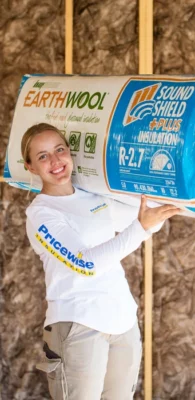
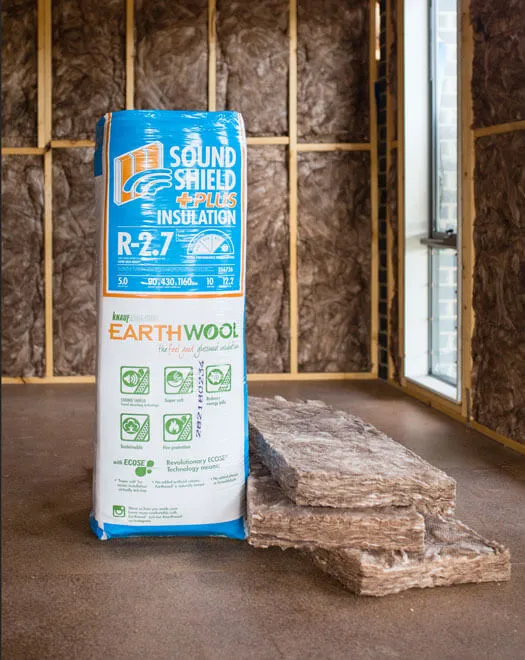
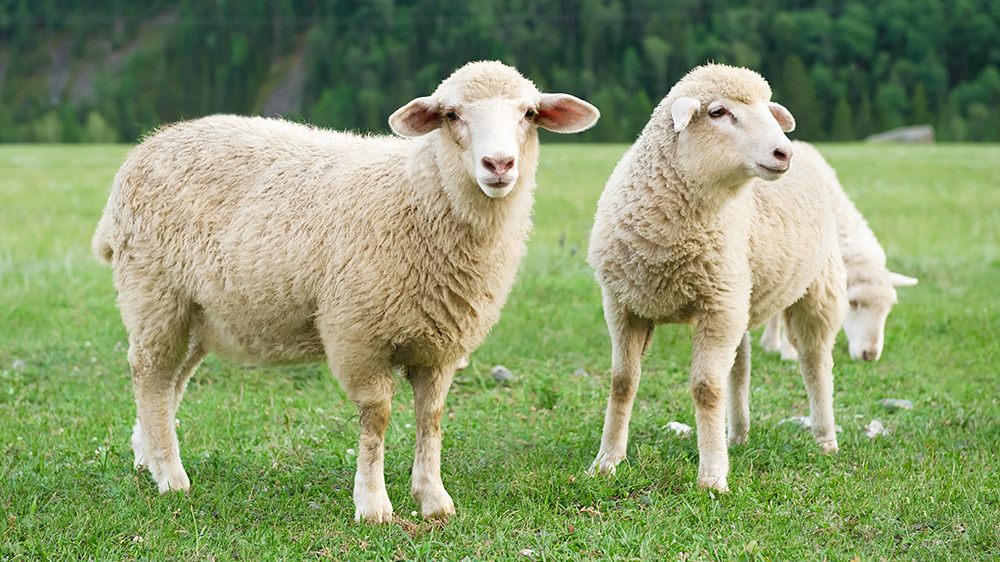
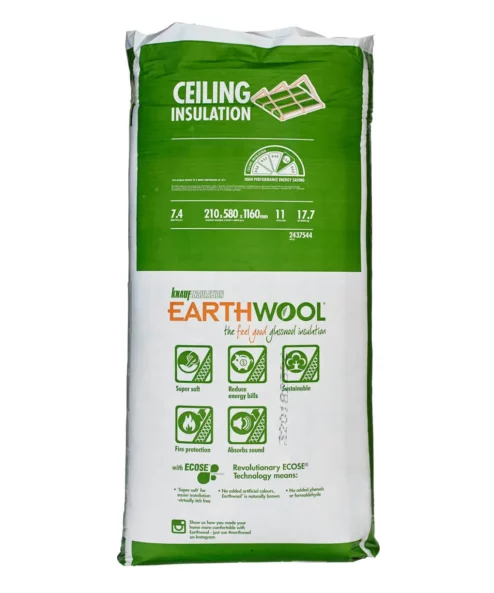
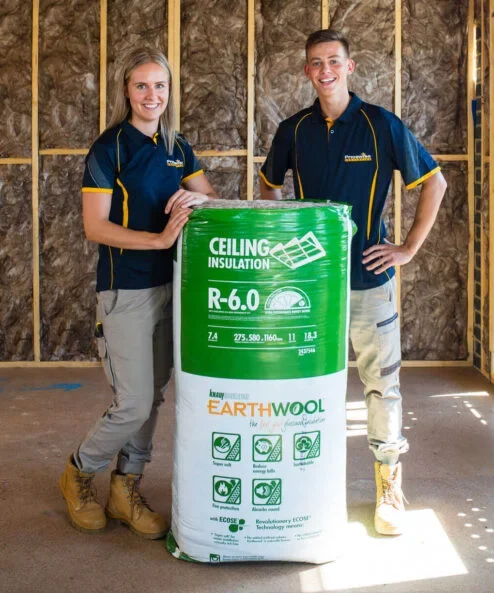
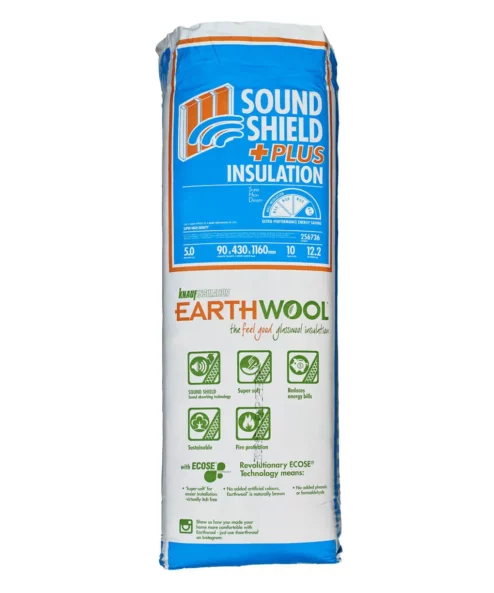
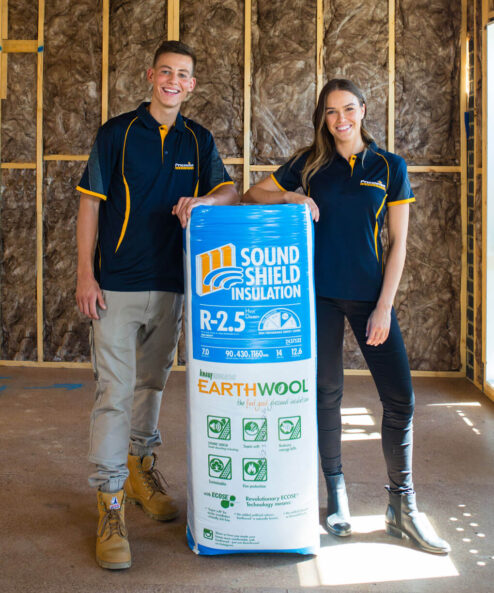
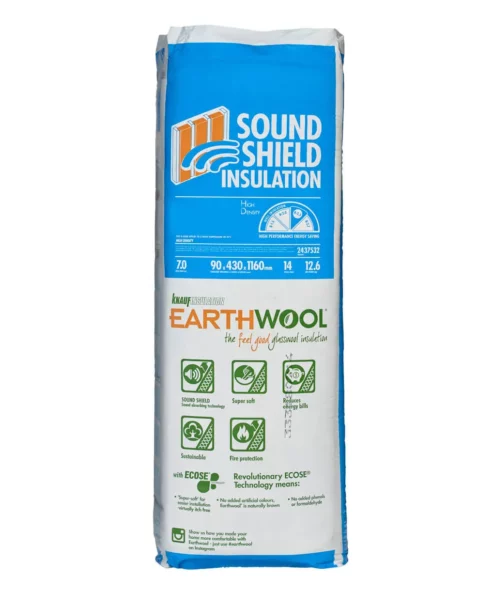
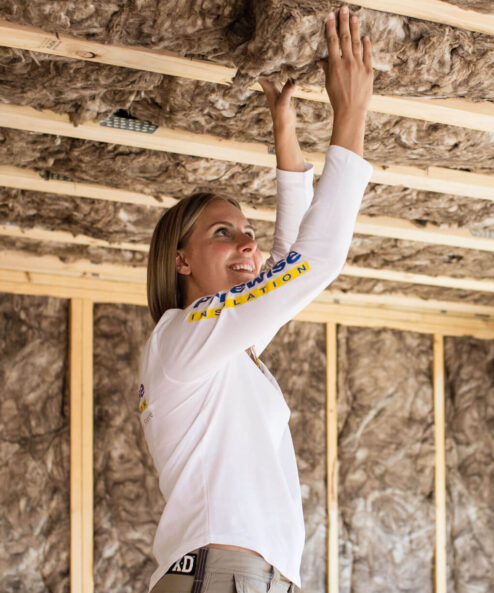
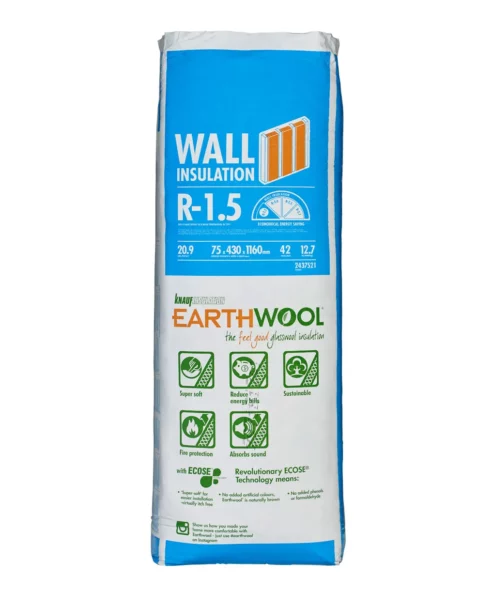
Can I get this in Australia?
Hi John,
Thanks for your comment!
We appreciate your interest in sheep’s wool insulation. However, it’s worth noting that sourcing pure sheep’s wool insulation in Australia can be challenging. The available home insulation products in our market typically consist of a blend of polyester and sheep’s wool.
If you have any further questions, feel free to reach out to the team on 1300 729 639.
Warm regards
Felicity
I am contacting you to learn if your Knauf product comes for wood framing which is 19.2 wall spacing? Cost for a Du pont Washington area? Thank you!
Hi William,
Your best option would be to reach out to a Knauf distributor near Washington. Unfortunately, we currently only service Australia.